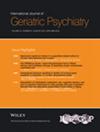Feasibility of Telephone-Based Cognitive Assessments and Healthcare Utilization in US Medicare-Enrolled Older Adults Following Emergency Department Discharge
Abstract
Background
Wider screening and assessment for Alzheimer's disease and other related dementias (ADRD) may increase access to supportive care, improve allocation of medical care, and foster the use of interventions that prevent or delay disease progression. Yet, the effect of diagnostic timing on clinical and utilization outcomes is poorly understood. Community-based settings such as a hospital emergency department (ED) may be an underrecognized opportunity to assess cognition and impacts on individuals and health systems. This study assessed the feasibility of recruiting older adults for telephone-based trials following presentation to the ED and administering telephone based cognitive assessments over the phone in this population.
Methods
Medicare-enrolled individuals 65+ years of age (n = 160) presenting to the Oregon Health & Science University Emergency Department (Portland, Oregon) between May 2022 and February 2023 were recruited by telephone. Participants were administered the Telephone Interview for Cognitive Status (TICS) Assessment and the Patient Reported Outcomes Measurement Information System (PROMIS) Cognitive Measure Questions on Mental Clarity via telephone 1–12 weeks post-discharge to evaluate cognition. Electronic medical records (EMR) were reviewed for medical care utilization including primary care provider (PCP) visits, hospital admissions, and ED visits for the 3 years prior to ED presentation.
Results
Twenty-six percent of eligible ED users contacted elected for study enrollment. The TICS Assessment score had a significant relationship with the three evaluated health care utilization measures (ED, PCP visits, or hospitalizations); the PROMIS Assessment had significant but weak correlations to ED and PCP visits.
Conclusions
Older adults 65+ years presenting to the ED are amenable to enroll in telephone-based cognition-focused trials and cognitive assessments can be carried out over the telephone in this population. The PROMIS Assessment may be a better cognition assessment tool when evaluating for cognition and care utilization in this population. In addition to the limits of the screening tools used in this study, a lack of a representative sample is a limitation of the study design. Future studies could use other validated cognitive assessment tools and utilize a study design with a recruitment strategy focused on obtaining a representative sample of older ED patients.

 求助内容:
求助内容: 应助结果提醒方式:
应助结果提醒方式:


